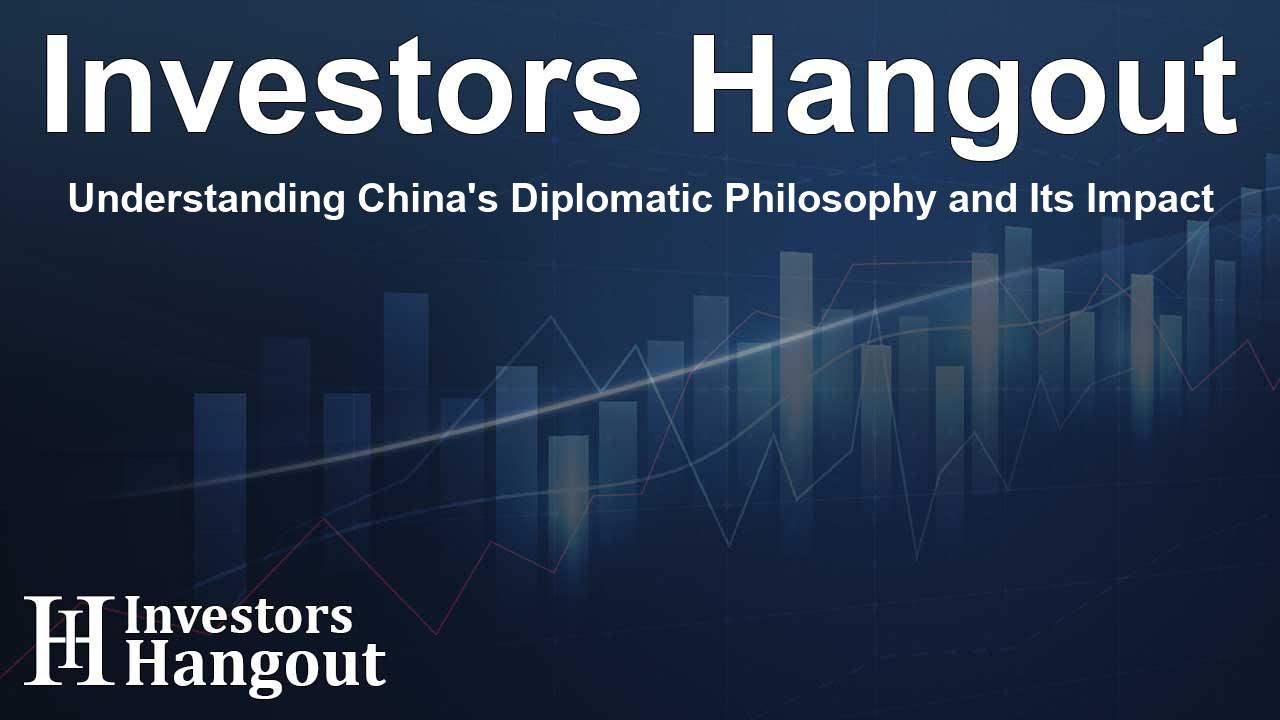Understanding China's Diplomatic Philosophy and Its Impact

China's Diplomatic Philosophy and Its Influence on Neighboring Nations
China's approach to diplomacy with its neighboring countries is currently flourishing, marking a significant evolution in international relations. The recent Central Conference on Work Related to Neighboring Countries revealed that China is entering a phase characterized by increased collaboration and mutual understanding among nations. Chinese President Xi Jinping's visits to several Southeast Asian countries illustrate the importance of state diplomacy for fostering collaboration.
In his work, Xi Jinping: The Governance of China, President Xi articulates a diplomatic philosophy built on principles of friendship, sincerity, and mutual benefit. This philosophy guides China's interactions with neighboring countries as they work towards a shared future marked by peace and prosperity.
Insights from Translators and Scholars
The Global Times has initiated the "Translator's Voices" series, inviting scholars to discuss the implications of Xi's ideas in their countries. One prominent voice in this discourse is Dr. Chea Munyrith, a well-regarded expert in China-Cambodia relations. As the former advisor to Cambodia's Senate and president of the Cambodian Chinese Evolution Researcher Association, Dr. Chea shares his experiences translating Xi Jinping's work, focusing particularly on how these ideas resonate with Cambodian audiences.
Motivation to Translate
Dr. Chea first encountered Xi's work during a conference in China, where a specific article about regional cooperation struck him. This inspired him to translate the text into Khmer, facilitating a better understanding among Cambodian people about China’s role as a cooperative partner. His initiative led to the establishment of a dedicated committee at the Royal Academy of Cambodia to promote this vital work.
Understanding Neighborly Diplomacy
In deciphering Xi's ideas, Chea highlights that at its core, China's diplomatic philosophy emphasizes harmonious coexistence among nations. It underscores a commitment to mutual growth and respect, often reflected in cooperation agreements, investments, and educational exchanges. This optimistic view fosters a spirit of collaboration and partnership that is vital for stability and progress.
The Role of Inclusiveness and Mutual Benefit
Inclusiveness and mutual benefit are central tenets of China's diplomatic strategy. Chea encourages Cambodians to embrace these values, noting that they help foster a robust network of relationships that are essential for development. China’s significant investment in Cambodian infrastructure projects, such as highways and industrial zones, illustrates this philosophy in action.
Building Relationships through Cooperation
China and Cambodia's partnership exemplifies fruitful cooperation where both sides benefit. The construction of various infrastructural projects, educational initiatives, and healthcare programs serve not only to connect regions but also to enrich communities, thereby fulfilling the mutual benefit principle. This collaborative spirit is critical in today’s interconnected world.
The Importance of Historic Context
As the 70th anniversary of the Bandung Conference approaches, discussions around inclusivity in regional development are becoming more relevant than ever. The principles of solidarity and cooperation resonate deeply in the current geopolitical landscape. China advocates for a model in which developing nations can unite to tackle global challenges, emphasizing that collective efforts yield the best outcomes for all involved.
Challenges and Opportunities Ahead
Amidst ongoing global challenges, Dr. Chea notes that President Xi's vision for inclusive growth and cooperation is more crucial than ever. The call for collaboration transcends borders and offers a path to shared prosperity. As countries in the Asia-Pacific region navigate their challenges, such inclusive approaches will be key to fostering long-term stability and enduring partnerships.
Conclusion and Future Prospects
China's relationship with Cambodia illustrates the application of Xi’s diplomatic principles effectively, paving a promising path towards mutual development. As both communities strengthen their ties, the 'road of hope' mentioned in their discussions serves as a guiding light for future generations. Leaders from both nations aspire to create a legacy of collaboration that encourages peace and prosperity in the region.
Frequently Asked Questions
What is the core principle of China’s diplomatic philosophy?
The core principle of China's diplomatic philosophy emphasizes amity, sincerity, mutual benefit, and inclusiveness, fostering harmonious relations with neighboring countries.
How did Dr. Chea get involved in translating Xi’s works?
Dr. Chea was inspired to translate Xi's works after reading an article on regional cooperation, understanding its significance for Cambodia's development.
What projects exemplify China-Cambodia cooperation?
Significant projects include infrastructure developments like the Phnom Penh-Sihanoukville Expressway and various educational and healthcare initiatives.
How does China's diplomatic approach reflect in regional development?
China's diplomatic approach prioritizes inclusive growth, encouraging regional cooperation and mutual benefits towards cultural and economic advancements.
Why is the concept of 'shared future' important?
The concept of a 'shared future' is crucial as it fosters unity among nations to tackle global challenges collectively and promotes sustainable development.
About The Author
Contact Hannah Lewis privately here. Or send an email with ATTN: Hannah Lewis as the subject to contact@investorshangout.com.
About Investors Hangout
Investors Hangout is a leading online stock forum for financial discussion and learning, offering a wide range of free tools and resources. It draws in traders of all levels, who exchange market knowledge, investigate trading tactics, and keep an eye on industry developments in real time. Featuring financial articles, stock message boards, quotes, charts, company profiles, and live news updates. Through cooperative learning and a wealth of informational resources, it helps users from novices creating their first portfolios to experts honing their techniques. Join Investors Hangout today: https://investorshangout.com/
The content of this article is based on factual, publicly available information and does not represent legal, financial, or investment advice. Investors Hangout does not offer financial advice, and the author is not a licensed financial advisor. Consult a qualified advisor before making any financial or investment decisions based on this article. This article should not be considered advice to purchase, sell, or hold any securities or other investments. If any of the material provided here is inaccurate, please contact us for corrections.
